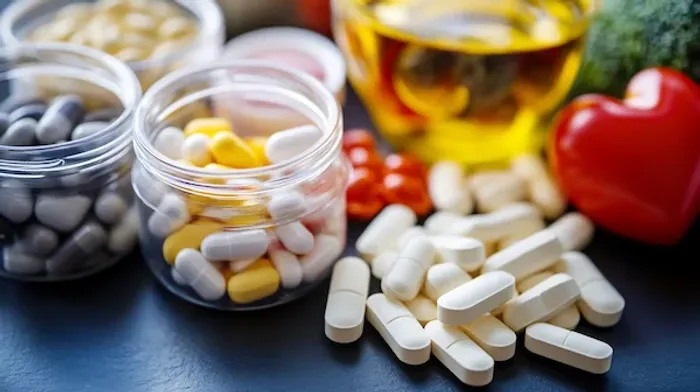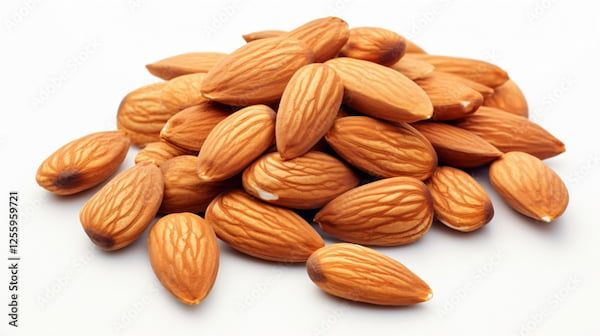The Ultimate Guide to Eating Before and After Surgery
Know about the eating before surgery, why diet is important, pre-surgery nutrition plan, key nutrient reserves before surgery, transition to liquid diet, food habits during recovery and more.

Written by Dr. Rohinipriyanka Pondugula
Reviewed by Dr. Vasanthasree Nair MBBS
Last updated on 13th Jan, 2026

Introduction
Undergoing surgery is a significant event for your body, and the road to recovery is paved with more than just rest and medication—it's built with nutrition. What you eat before and after your procedure can dramatically influence how quickly you heal, your energy levels, and even your risk of complications. This comprehensive guide will walk you through every phase of your surgical journey, from the essential pre-op fasting rules to the best foods that fuel tissue repair and fight inflammation. Whether you're preparing for a minor procedure or a major operation, understanding the right surgery diet is your most powerful tool for a smooth and speedy recovery. Let's explore how to nourish your body back to health.
Why Your Diet is a Critical Part of Your Surgery
Think of your body as a construction site. Surgery is the demolition phase, and recovery is the rebuilding process. You wouldn't start rebuilding without the right materials, right? Nutrition provides those essential materials. A well-planned diet before surgery helps build up your nutritional stores, strengthening your immune system and preparing your body for the stress ahead. Afterwards, the right foods reduce inflammation, promote new tissue growth, and restore energy and strength. Poor nutrition, on the other hand, can lead to a higher risk of infection, slower wound healing, muscle loss, and a longer hospital stay. By prioritising your intake, you actively participate in your own healing, giving your body the best possible chance to recover efficiently and effectively.
Health topic carousel:
Doctor speciality: General Physician
Text: Consult Top General Physician for Personalised Advice
The Pre-Surgery Nutrition Plan: Fueling for Success
These include:
The Golden Rule: Fasting Before Surgery
This is non-negotiable. You will be instructed to follow a clear liquid diet before surgery, typically starting at midnight the night before your procedure. This fasting is crucial to prevent pulmonary aspiration—a serious complication where stomach contents enter the lungs while you are under anaesthesia. Follow your surgeon's instructions precisely regarding the timing and what is allowed (usually water, clear broth, black coffee, or apple juice).
Building Your Nutritional Reserves in the Weeks Before
The weeks leading up to your operation are your window of opportunity to build a strong nutritional foundation. This is the time to focus on a balanced, pre-surgery diet for better recovery. Aim for whole, unprocessed foods that are rich in the nutrients your body will desperately need later.
Key Nutrients to Focus On Before Your Procedure
Protein: The Building Block of Recovery
Protein is paramount. It's essential for creating new tissue, repairing incisions, and maintaining muscle mass during periods of inactivity. Include lean sources like chicken, fish, eggs, tofu, lentils, and Greek yoghurt in your daily meals.
Iron & Vitamin C: Partners in Healing
Iron helps carry oxygen in your blood, which is vital for healing. Pair iron-rich foods (lean red meat, spinach, beans) with Vitamin C sources (citrus fruits, bell peppers, broccoli) to significantly enhance iron absorption and boost collagen formation.
Vitamin D and Calcium: For Bone Surgery
If you're undergoing orthopaedic surgery, these nutrients are critical. Calcium strengthens bones, and Vitamin D ensures your body can absorb it. Prioritise dairy products, fortified plant milks, leafy greens, and get some safe sun exposure.
The First 24-48 Hours: The Liquid Diet Phase
Immediately after surgery, your digestive system will be sluggish from anaesthesia. Your primary goal is staying hydrated is your top priority. Start with small, frequent sips of clear liquids to avoid nausea.
Best Liquids: Water, ice chips, clear broth, diluted apple juice, herbal teas (like ginger or peppermint for nausea), and electrolyte-replenishment drinks.
What to Avoid: Dairy milk, creamy soups, orange juice, and anything with pulp, as these can be harder to digest and may trigger vomiting.
As your stomach tolerates clear liquids, you can slowly advance to full liquids like milk, smooth, creamy yoghurt (without fruit chunks), and protein shakes, which provide more sustenance.
Transitioning to Soft Foods: Listening to Your Body
Once you can handle liquids, you'll graduate to soft foods after surgery, no chew. This phase is about gentle nourishment. The classic BRAT diet (Bananas, Rice, Applesauce, Toast) is a good start, but it lacks protein and other nutrients, so move beyond it quickly.
Excellent Soft Foods: Scrambled eggs, mashed potatoes (with gravy or broth for moisture), well-cooked oatmeal, pureed soups (lentil or chicken), soft-cooked vegetables like carrots, avocados, and soft fish like cod or tilapia.
Listen to Your Body: Introduce one new food at a time and stop if you experience pain, bloating, or nausea. The key is to advance your diet gradually.
The Recovery Diet: Building Back Strength with Food
This is where you build your strength for the long haul. Your plate should be a rainbow of nutrient-dense foods designed to promote wound healing and restore energy.
The Power of Protein for Tissue Repair: Continue with high-protein choices. Aim for 20-30 grams of protein per meal. Consider incorporating a high-quality protein drink after surgery if your appetite is low.
Fibre: Your Natural Defense Against Constipation: Pain medications (opioids) are notorious for causing constipation. Combat this with high-fibre foods like oats, chia seeds, well-cooked beans, and pureed fruits and vegetables. Remember to increase fibre intake along with fluids.
Healthy Fats and Complex Carbs for Energy: Fats from avocados, olive oil, and nuts reduce inflammation. Complex carbs from whole grains and vegetables provide sustained energy without spiking your blood sugar.
Foods and Habits to Avoid During Recovery
Inflammatory Foods: Highly processed foods, sugary snacks, and fried foods can increase inflammation and impair immune function.
Alcohol: It can interact negatively with pain medications, dehydrate you, and slow down the healing process.
Excessive Sugar: It can suppress immune function and promote inflammation.
Foods that Cause Gas: Broccoli, cabbage, and carbonated drinks can cause uncomfortable bloating, especially after abdominal surgery.
Conclusion
Your journey through surgery doesn't end when you leave the operating room; it continues with every meal you eat during your recovery. By understanding the pivotal role of nutrition—from the strategic building phase before your procedure to the careful reintroduction of foods afterwards, you empower yourself to heal more effectively. Remember to prioritise protein, embrace fibre-rich foods, stay hydrated, and avoid dietary pitfalls like sugar and processed items. While this guide provides a strong foundation, every person and procedure is unique. Always follow the specific dietary instructions provided by your surgical team. If you experience a complete lack of appetite, significant weight loss, or symptoms of dehydration that persist, it's crucial to consult your doctor.
Health topic carousel:
Doctor speciality: General Physician
Text: Consult Top General Physician for Personalised Advice
FAQs
1. What are the best clear liquids to drink right after surgery?
A.Start with water, ice chips, clear broth or bouillon, diluted apple juice, and clear electrolyte drinks. Herbal teas like ginger or peppermint can also help soothe nausea.
2. I have no appetite after surgery. How can I get enough nutrients?
A.This is very common. Focus on calorie-dense and protein-rich liquids like smooth nut butter blended into a shake, full-fat Greek yoghurt, creamy soups, or a high-quality medical nutrition supplement shake. Taking small sips throughout the day is easier than facing large meals.
3. What should I eat to help avoid constipation after surgery?
A.To manage constipation after surgery, combine high-fibre foods like pureed prunes, oatmeal, and chia seeds with ample water intake. Staying mobile (as approved by your doctor) also helps stimulate bowel function.
4. How long should I stay on a soft food diet?
A.The duration varies based on the type of surgery. For dental work, it might be a week. For abdominal procedures, it could be several weeks. Always follow your surgeon's specific advice and only advance to more solid foods when you can chew and swallow without pain or difficulty.
5. Are protein shakes good for recovery after surgery?
A.Yes, high-quality protein drinks after surgery are an excellent way to meet your increased protein needs, especially when your appetite is low. Look for shakes with minimal added sugar and at least 15-20 grams of protein per serving.




